Ocean
The Living Force
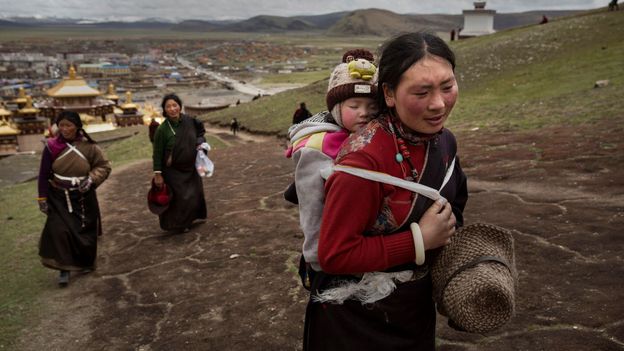
Is the Western way of raising kids weird?
From sleeping in separate beds to their children to transporting them in prams, Western parents have some unusual ideas about how to raise them
(Image credit: Getty Images)
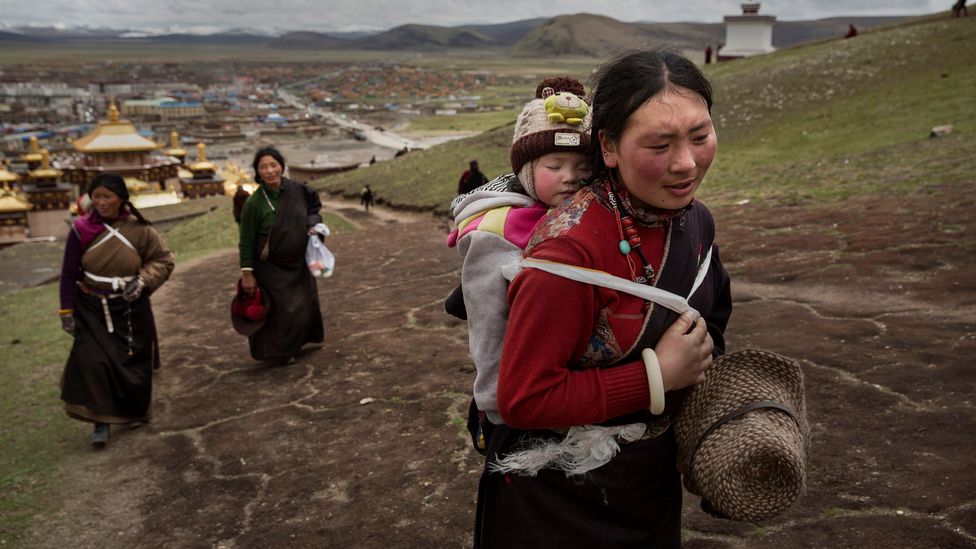
By Kelly Oakes 23rd February 2021
From sleeping in separate beds to their children to transporting them in prams, Western parents have some unusual ideas about how to raise them.
"Is he in his own room yet?" is a question new parents often field once they emerge from the haze of life with a newborn. But sleeping apart from our babies is a relatively recent development – and not one that extends around the globe. In other cultures sharing a room, and sometimes a bed, with your baby is the norm.
This isn’t the only aspect of new parenthood that Westerners do differently. From napping on a schedule and sleep training to pushing our children around in strollers, what we might think of as standard parenting practices are often anything but.
Parents in the US and UK are advised to have their babies sleep in the same room as them for at least the first six months, but many view this as a brief stopover on their way to a dedicated nursery.
In most other societies around the world, babies stick with their parents longer. A 2016 review that looked at research on children sharing not just a room but a bed with one or more of their parents found a high prevalence in many Asian countries: over 70% in India and Indonesia, for example, and over 80% in Sri Lanka and Vietnam. Research on bedsharing rates in countries across Africa is patchy, but where it does exist suggests the practice is near-universal.
Debmita Dutta, a doctor and parenting consultant in Bangalore, India, says that despite Western influences, bedsharing remains a strong tradition in India – even in households where children have their own rooms. "A family of four has three bedrooms, one each for each child and for the parents, and then you would find both the children in the parent's bed," she says. "It's that common."
Bedsharing is one way to reduce the burden of babies waking up at night, says Dutta. Her own daughter had a rollout bed next to her parents' that she could sleep on until she was seven years old. "Even after she stopped breastfeeding, she still liked to sleep with us in the same room," she says.
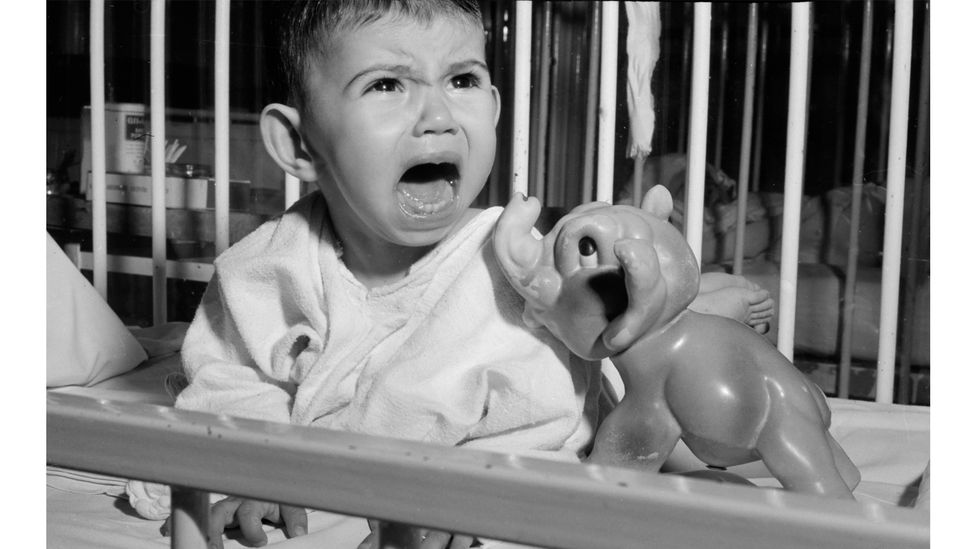
The idea that babies shouldn’t wake up at night is a cultural myth, according to some experts (Credit: Getty Images)
Many parents in Western societies instead turn to sleep training methods, the most extreme version of which involves leaving a baby on their own to "cry it out", in an effort to encourage their babies to sleep for longer stretches so their parents can get some much-needed rest. In Australia there are even state-funded residential sleep schools parents can check-into, to sleep train their children.
Encouraging early independence aligns with a typical Western cultural focus on individualism. For that reason, bedsharing can seem to some like giving in to your child, and encouraging them to stay dependent on their parents. But parents with a more collectivist mindset, like Dutta, usually don't see it that way. "You give them some self-confidence and some independence, they will separate from you on their own," she says. "They will not stick to you forever."
You might also like:
- How Covid-19 is changing the world’s children
- Why the way we talk to children really matters
- How the 'Western mind' was shaped by the Medieval Church
Research by Jun Kohyama, CEO at the Tokyo Bay Urayasu Ichikawa Medical Center, and colleagues has found that babies in Japan tend to nap less than those in other Asian countries once they reach three months of age, possibly, he says, because "sleep is considered a lazy attitude in Japan".
Kohyama also found that children in Asian countries tend to have later bedtimes than their counterparts in predominantly-Caucasian countries. He thinks parents wanting to spend time with their children in the evenings is partly to blame. Bedsharing – the cultural norm in Japan – could also be a factor. "Parents feel their baby is a part of his or her own body," he says.
Though, as in the UK, the US American Academy of Pediatrics advises parents to share a room with their baby to reduce the risk of sudden infant death syndrome (SIDS), it warns against sharing a bed because bedsharing has been associated with an increased risk of SIDS.
But Rashmi Das, a professor in paediatrics at the All India Institute of Medical Sciences, Bhubaneswar, and author of a review on bedsharing safety, says that a lack of high-quality research on the topic makes it difficult to say whether bedsharing itself increases the risk of SIDS in the absence of other risk factors like smoking and drinking. "We could not tell whether bedsharing is actually increasing the risk of SIDS," says Das.
Studies on the topic mostly come from high-income countries, where bedsharing is less common. But low-income countries, where bedsharing is traditional, also have some of the lowest SIDS rates in the world.
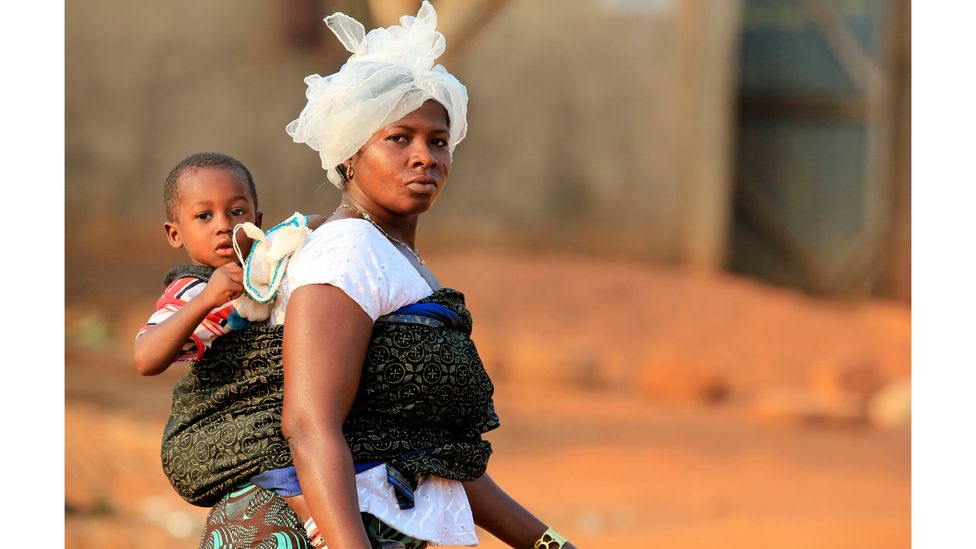
Babywearing allows parents to keep their children close during the day (Credit: Getty Images)
It doesn't seem to be a simple issue of geography: when someone living in the West has imported their cultural practices from elsewhere, they bring the lower SIDS risk with them too. Families of Pakistani origin living in the UK, for example, have a lower SIDS risk than white British families – despite mothers commonly sharing a bed with their baby.
"It's the cultural practices that are associated with the lower SIDS," says Helen Ball, a professor of anthropology at the University of Durham and director of the university's Parent-Infant Sleep Lab. Mothers of Pakistani-origin in Bradford have higher rates of breastfeeding and are less likely to smoke, drink, and put their baby to sleep in a separate room – all factors that are known to reduce the risk of SIDS.
Das says he'd like to see bedsharing encouraged but "with a caution note that those persons who are bedsharing should not smoke, should not take alcohol, should not be very obese". UK SIDS-prevention charity The Lullaby Trust has advice for parents who want to make their bed a safe sleep surface for their baby.
Just as bedsharing keeps babies close during the night, babywearing provides a way to keep them close in the day while parents run errands or work around the house. Rather than a new trend, carrying children in a sling is something humans have done for as long as we’ve been around. It was only when prams became popular during the Victorian era that traditional baby carriers became less common among some sections of Western society. In the rest of the world, there are seemingly almost as many different ways to carry a baby as there are cultures in which babies are carried.
Even parents who don't use a sling will probably have noticed the instant calming effect of picking up their baby and moving with them. "They intuitively know that this kind of rhythmic motion, between 1-2 hertz, has some power to calm down a baby," says Kumi Kuroda at the Riken Centre for Brain Science in Japan.
Kuroda began looking into the physiological effects of carrying infants when she saw that previous research, which used parental diaries rather than real-time physiological measurements, didn’t find any correlation between the amount of time babies were carried and the amount they cried. "I couldn’t agree with that," she says.
Her research found that carrying a baby reduced their heart rate and movement as well as how much they cried. She says subsequent research found that movement without holding, such as transporting a baby in a pram or car seat, as well as holding without moving, also calms a baby over time, but that they work faster in combination.
Close contact, day and night, is what babies expect, biologically-speaking. In their first months they need to be fed frequently around the clock. Even when a baby's circadian rhythm develops and their sleep begins to consolidate during nighttime hours, waking during the night for at least their first year is normal.
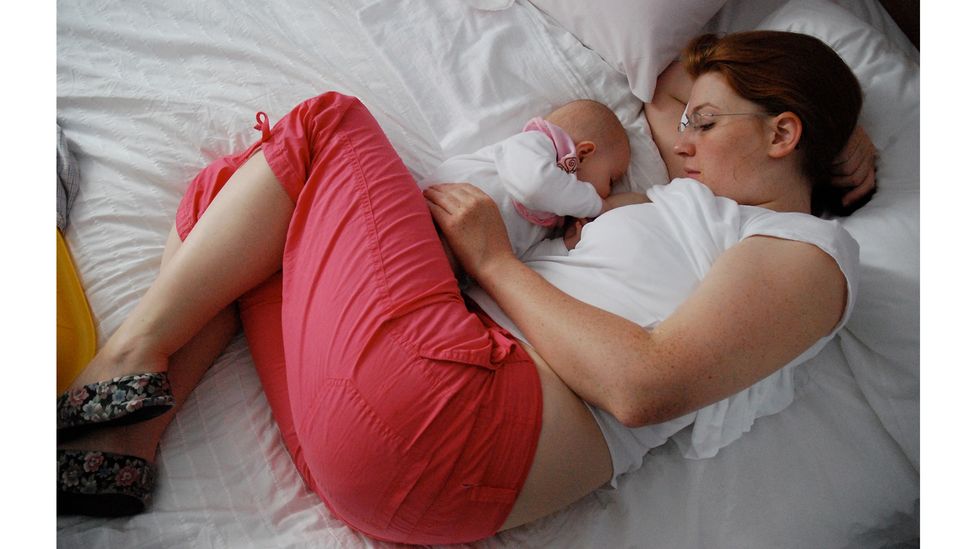
In the West, there’s a cultural belief that children who sleep on their own will be more independent (Credit: Baby Sleep Information Source website/ Kathryn O'Donnell)
"Babies' biology has not changed dramatically over hundreds or thousands of years," says Ball. "But our culture has changed dramatically, and our expectations of babies and of parenting has changed dramatically over the course of a few decades."
But the idea that night-waking is normal is not the message that new parents in the West are getting from family, friends and the wider culture. "We've sort of developed this cultural myth that babies shouldn't wake at night," says Ball.
That myth has consequences. Disturbed sleep in early parenthood has been associated with postpartum depression. But Ball says that trying to "fix" a baby's sleep isn't getting to the heart of the problem – instead, supporting the parents directly is more likely to improve their mental health.
"Parents who are depressed experience their baby's sleep disruption worse than parents who aren't," she says. "Our argument is that actually, we need to fix what's going on in the parents' heads, we need to support them to think about all of this in a different way." She put together the Baby Sleep Info Source to arm new parents with accurate information on baby sleep.
The idea that older babies "should" be able to sleep through the night comes from research from the 1950s that found, out of a group of 160 babies living in London, 70% began "sleeping through the night" by three months of age.
But the researchers defined "sleeping through" as not waking their parents by crying or fussing between the hours of midnight and 5am – far from the unbroken eight-hour stretch that many new parents long for – and not whether the babies themselves were actually asleep during that period. In any case, 30% of the babies hadn't begun sleeping longer stretches by that age, and half of the babies that were "sleeping through" reverted back to waking more at night later in their first year.
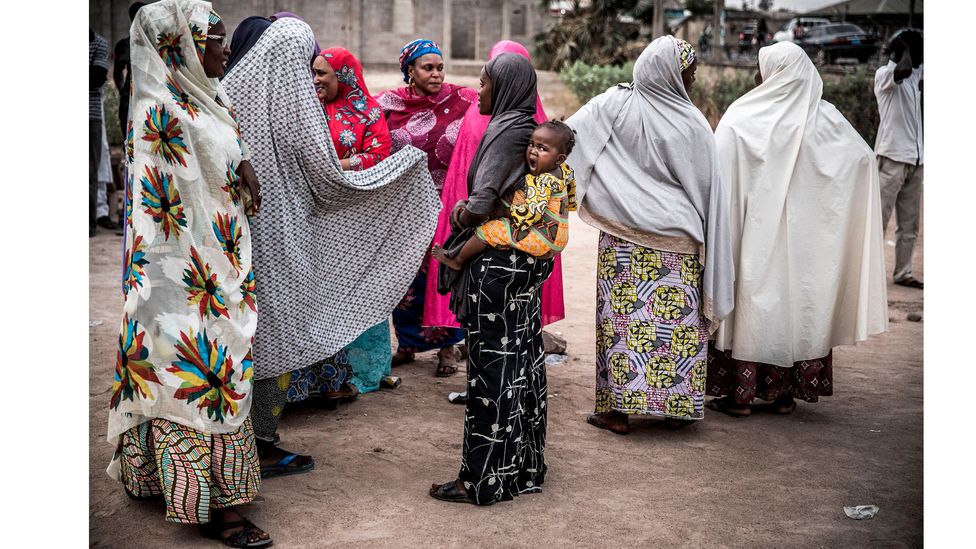
One study found that carrying babies can reduce their heart rates and how much they cry (Credit: Getty Images)
Even today, much research on infant sleep only looks at a specific subset of the global population. "So much of the research over the last several decades has been done on Western babies," says Ball.
While there are undoubtedly differences between cultures when it comes to how we care for babies, there are many differences within them, too. Not everyone in the West thinks a baby sleeping in their own room is ideal. In one study, for example, Italian parents called it "unkind".
Personal circumstances play a big part in how people care for their babies, and every parent finds their own particular way to do things. "All families are different, so a wide diversity is OK," says Kuroda.
For her part, Kuroda co-slept with her four children as a way to adapt to being away from them during the day. "I'm working full time and if I separate the whole night, it's really minimal time for the baby. We can intensely communicate, even in the nighttime. It’s real communication and time together."
But she says, as with all parenting choices, people should find what works for them and their baby, rather than worrying too much about what anyone else is doing. "I think the parent and the infant can adapt to each other," she says. "It's like a tango."
The key to thinking outside the Western box might be to remember that babies are not out to manipulate us, no matter how tempting it might be to see it that way at 3am. "What we really need with babies is to stop thinking about them as hard-to-please bosses," says Dutta. "They're helpless little beings that have come into this world, and we must look at them with empathy and compassion."
--

